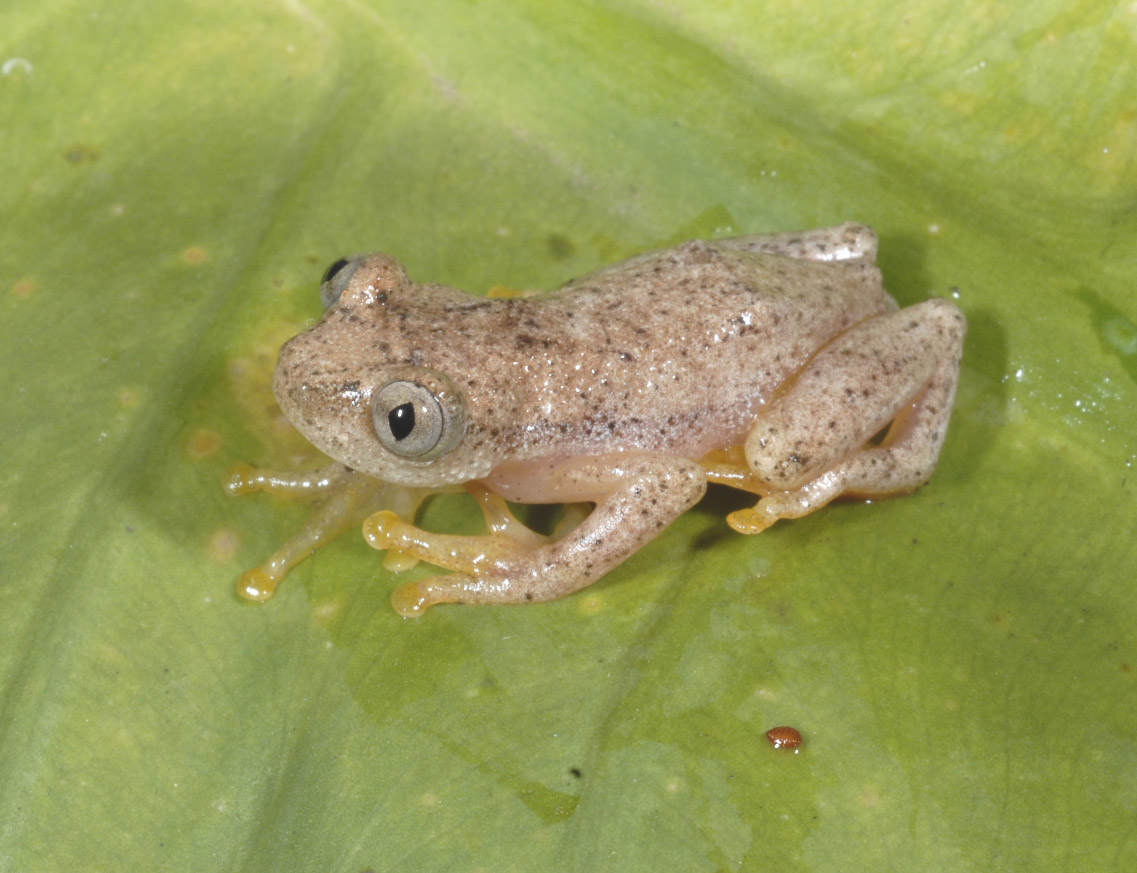By Jennifer Clampet
UTEP News Service
From a few bouts with malaria to gracefully bowing out of an invite to marry any single woman in an African tribe, Eli Greenbaum, Ph.D., has gone to a lot of trouble to see some frogs.
The University of Texas at El Paso assistant professor of biological sciences received widespread recognition in 2011 for rediscovering five species of frogs in the Democratic Republic of the Congo.
Traipsing through the rain forest with an organized entourage of porters and armed escorts, the herpetologist’s adventures hearken back to the days of 19th century biologists looking for new species. (He does, however, have a satellite phone and water purification tools.)
“It’s a challenging place to work: the heat, the terrain, the tropical diseases,” Greenbaum said.
But he keeps going back. Why?
“The large number of frog species known from the Congo will double or triple before all scientific exploration is completed,” said Greenbaum, whose past sponsors for expeditions have included UTEP and the National Geographic Society.
The adventures in exploration have an understandable allure for young scientists, said Carl Lieb, Ph.D., professor of biological sciences at UTEP.
“What Dr. Greenbaum is doing really is scientific discovery at its most elemental form,” Lieb said.
Putting a 21st-century twist on his expeditions, Greenbaum is looking to attract sponsors with a promise to “name a new species.”
He is hoping that the campaign will attract sponsors not only interested in the prestige of scientific naming but also in the conservation of species that may become extinct before the world ever knows they exist.
Q: So it’s appropriate to note that you’ve had a fascination with hopping amphibians since childhood?
Greenbaum: When I was a kid I lived a few blocks away from the Buffalo Zoo in Buffalo, N.Y. I got to know the reptile keeper and my fascination started from there. … It’s definitely a childhood fascination that never ended.
Q: You’ve described frogs as being the “canaries in the coal mine” in respect to species disappearing around the world. How do you make that connection between human survival and frog survival?
Greenbaum: It is a little bit of a controversy among scientists because what affects amphibians does not necessarily affect us directly. But in the last 20 years, more than 150 species of frogs have gone extinct – an epidemic of global amphibian extinctions. The analogy is important because when a frog disappears from an ecosystem it creates a negative cascade effect, and soon those effects will be a problem for us.
Q: Are you talking about the energy pyramid where humans are on top and flies and frogs are on the bottom?
Greenbaum: Right. So the energy of flies and bugs is transferred to frogs, which is then transferred to carnivores that eat the frogs. This overall ecology of the planet is very important. If the beginning of that chain disappears, it’s not good news for us.
Q: What makes the frogs in the Congo so hopping special?
Greenbaum: Most of the world’s biodiversity is in the tropical region. The Equator runs right through the Congo, so the area is incredibly rich in habitats … The Congo also has an enormous amount of poorly explored biodiversity.
Q: But the Congo also presents some harsh conditions, right?
Greenbaum: It’s the least developed country in the world and for that reason I don’t have many competitors who work in that area. It was a Belgian colony until the 1960s. Then it just collapsed – politically, economically, socially. And it has never recovered. But it’s an absolute gold mine for biologists.
Q: How many new frog species have you discovered in the Congo?
Greenbaum: Through my six expeditions, I’ve discovered about a dozen new species including the vanilla reed frog, the Kahuzi Volcano frog and the constellation frog, all of which require new scientific names.
Q: And what’s the ultimate payout for sponsors helping to discover new species of the webbed-digit kind?
Greenbaum: They’ll be helping to conserve the world’s biodiversity through scientific exploration of the Congo, which ultimately leads to expansion of national parks that protect newly discovered species. Frogs are in trouble, and this is a tax-deductible way to help out.
Q: This work seems to be a bit dangerous just to catch some croaking amphibians. Why do it?
Greenbaum: The frogs are going extinct right now. So if no one else does this, a huge amount of biodiversity will be gone before we have a chance to discover and protect it.
For more information on sponsorship activities, contact Victoria Gutierrez at 915-747-8257.
